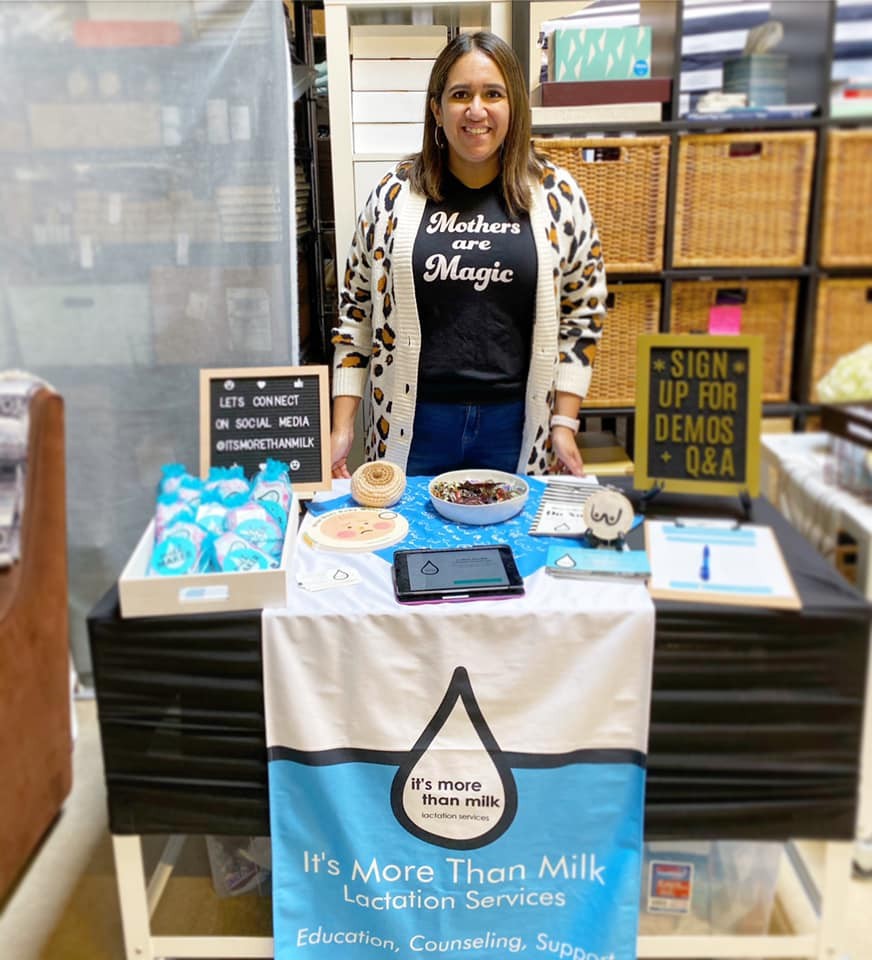We recently connected with Sunayana Weber and have shared our conversation below.
Sunayana, thanks for taking the time to share your stories with us today Was there a moment in your career that meaningfully altered your trajectory? If so, we’d love to hear the backstory.
My own difficult lactation journey with my oldest led to me realizing what I wanted to be when I grew up! The overnight nursing and pumping sessions led me to read a lot about lactation. My friends started asking me for advice. Soon, they started giving my phone number out to their friends for support. I knew I had to change the trajectory of my career and legitimize the way I supported new parents. Prior to becoming an International Board Certified Lactation Consultant (IBCLC), I worked full time in a completely different field that had nothing to do with babies or lactation. I obtained an entry-level lactation certification to make sure this is truly what I wanted to do before diving in. I began working towards completing all of the educational requirements to sit for the IBCLC exam on evenings and weekends. While my 9 to 5 helped pay for classes, I knew that lactation is where my passion was.
During this time, I was taken under the wing of an established IBCLC and had a very unofficial mentorship. I helped her facilitate a weekly breastfeeding group, and she let me sit in on her visits with new parents. I will never forget the day that a friend and her new baby ended up being the clients. When I successfully helped my friend’s baby latch without pain (under supervision, of course), I was hooked. I knew that being an IBCLC was the right career move for me!


Awesome – so before we get into the rest of our questions, can you briefly introduce yourself to our readers.
I am an International Board Certified Lactation Consultant, or an IBCLC for short. I support families in their breastfeeding, chest feeding, and pumping journeys, from prenatally to weaning, and everything in between! An IBCLC is the gold standard for clinical lactation management. I’ve taken 14 health science courses (including 8 college-level science courses), 120 hours of lactation specific education, and have hundreds of supervised clinical hours – and all of this was just to qualify to SIT for the exam!
After working with an established practice for 5 years, I recently went into business for myself. I provide in home, in clinic, and virtual lactation visits. Parents will reach out to me if they have concerns about milk supply, their baby’s latch baby’s weight gain, bottle feeding, starting solid food – a lot of things that happen in the first year of their baby’s life. My clinic space is cute and comfortable. It’s set up like someone’s cozy living room, but with just about everything a family would need to feed their baby or express milk.
One thing I pride myself on is really making my clients feel heard. I’m often the first healthcare provider that the family has sat down with since the birth of their baby, and there may be a lot to process. Childbirth doesn’t always go the way it’s planned, and neither does lactation. I lovingly say that many of my lactation visits are 60% lactation support, and 40% “therapy” – I hold space by encouraging them share the emotional aspect of the transition to parenthood. I see myself as their guide through early parenthood, helping them better understand this tiny human they just met. I tell them that my job as a lactation consultant is to help support their goals, whatever they look like and even if they change, not to judge them.


Do you think you’d choose a different profession or specialty if you were starting now?
I would absolutely choose the same profession. I wouldn’t want to take as much time to get to this point, but I would definitely want to do the same thing. Working with families in the early days of parenthood takes a special type of person: someone who gently encourages them to keep going without toxic positivity, but also someone who knows when to tell them it’s okay to stop. I love knowing that I play a role in shaping their parenting journey. The early postpartum period is a tumultuous time and knowing that I can be a resource for them is wonderful. Plus I feel like I’m fighting social norms about lactation, breasts/chests, and what postpartum people are capable of with every drop of milk.
Other than training/knowledge, what do you think is most helpful for succeeding in your field?
I think knowing my scope of practice and limits is just as important as the knowledge and information I bring to the table. I believe that finding other professionals that offer complementary care is something I’ve experienced myself. If I’m seeing a baby that had a very long or difficult birth, I know that I may have to work with a pediatric physical therapist to help address tightness in their neck or jaw. Similarly, if a parent had a difficult pregnancy or birth, they may be more at risk for perinatal mood and anxiety disorders – a mental health therapist or counselor would help greatly. Understanding that you as an IBCLC may not be able to fix all of the family’s issues important – collaboration is key!
Contact Info:
- Website: https://www.itsmorethanmilk.com
- Instagram: https://www.instagram.com/itsmorethanmilk
- Facebook: https://www.facebook.com/itsmorethanmilk
- Yelp: https://www.yelp.com/biz/its-more-than-milk-lactation-services-austin-3
Image Credits
Yellow sweater photo by Jessica Rockowitz


